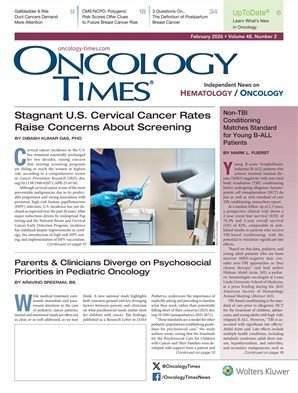“You have cancer!” These words trigger the first side effects of cancer and treatment: anxiety and fear. A cancer diagnosis creates a cascade of potentially traumatic situations, and often causes chaos in the lives of patients and their families. For this reason, yoga dedicated to cancer patients and survivors must be trauma informed.
Let’s take a closer look at what it means to be trauma informed. To start, what is Trauma? Trauma refers to physical, mental, and/or emotional pain resulting from a disturbing event. A cancer diagnosis is certainly that- a disturbing event!
Response to trauma can be acute, chronic, or complex, and of short-term or long- term duration. Cancer related trauma can occur in many ways over the course of a person’s experience with diagnosis, through treatments and beyond recovery.
Examples of cancer related trauma include:
- The Diagnosis – Being told ‘you have cancer’. Clearly, this unwelcome, often unexpected, news understandably creates trauma.
- Treatment Protocols. The treatment decision-making process and the repetitive nature of treatments creates stress and anxiety as an individual balances the pain and the large impact cancer has on one’s life.
- The physical impact of cancer treatments creates physical & mental trauma in the body that takes time and rehabilitation to heal.
- Social perceptions or stigmas of being a person living with cancer can cause traumatic events. Participating in social engagements, shifting family dynamics, and even being seen in public as a perceived “sick person” can cause trauma.
- The economic impact of cancer or what is called “financial toxicity” can lead to significant traumatic events, including financial strain and job loss.
- Cancer Recurrence. Possibly the most signific nt trigger is the relentless fear of cancer recurrence. Any new pain or lump can trigger the original event of hearing ‘you have cancer’. If recurrence happens, then a person is brought back into their experience of cancer the first time.
- Fear of Death. Even though cancer treatments are advancing and survival rates are increasing, the experience of cancer inevitably brings people closer to their own mortality. The realization that life is ‘fleeting’; the fear of premature death can become an unwelcome daily companion.
The elusive source of Cancer Trauma
Cancer related trauma doesn’t often have a source to blame. Most often, the cause of a person’s cancer is unknown. This can lead to feelings of helplessness, or worse, a dangerous self-blaming cycle that negatively impacts recovery. The realization that cancer is the growth of a person’s own cells, and not a disease that can be caught from something outside one’s own body/entity, can be disturbing, debilitating and traumatizing.
Oncology Yoga is trauma informed
What does trauma informed yoga mean? To be trauma informed is to recognize these various sources of cancer-related trauma, and being aware of and anticipating how survivors may respond to triggering words, actions or situations. Being trauma-informed means creating an environment that does not cause further harm, and instead fosters growth, resiliency, and well-being. Therefore, Oncology Yoga is inherently trauma informed, and maintains certain standards to ensure a practice for cancer patients and survivors that is safe and effective.
Requirements for a ‘Trauma Informed’ Oncology Yoga Professional:
» Understands the facts about cancer, treatments, and side effects, including anxiety, fear and vulnerability.
» Received specialized training in Oncology Yoga to guide a physically safe and effective yoga intervention.
» Practices language awareness.
» Nurtures a community wherein individuals can learn to feel comfortable and safe knowing
potential triggers will be managed by the Oncology Yoga professional.
» Recognizes that individuals carry multitudes of experiences, and cancer related trauma may not be the only present trauma that an individual is managing.
» Is self-aware of the boundaries within the role of an Oncology Yoga professional; cooperates as part of a holistic team of caregivers and encourages survivors to seek support from other professionals when care is needed that falls outside the scope of Oncology Yoga. Examples include treatment advice or psychotherapy.
» Practices self-compassion and understands how to manage their own trauma.
What does the Trauma Informed Oncology Yoga Professional seek to do?
- Avoid yoga practices that could be triggering.
- Address the specific needs of their students by making cancer, treatments, and potential
side effects front and center to any intervention. - Employ the evidence-based benefits of yoga to address anxiety and stress. The practice of yoga can activate the parasympathetic nervous system and help produce the release of dopamine and other similar neurological stimulants. An oncology trained yoga professional understands how movement, breathing and meditation can elicit these benefits for cancer patients and survivors.
- Provide agency to students with practical and effective means to participate in their own recovery and long-term survival.
- Not to avoid the ‘cancer elephant’ in the room.
- Avoid coddling and other behavior that could make a person feel sick or victimized. (Often
coddling is misdirected compassion and could unknowingly be condescending)
Trauma Informed training is fundamental to any Oncology Yoga Certification. This reading is just one part of the yoga4cancer 75 Hour Certificate Program. Learn more here.

